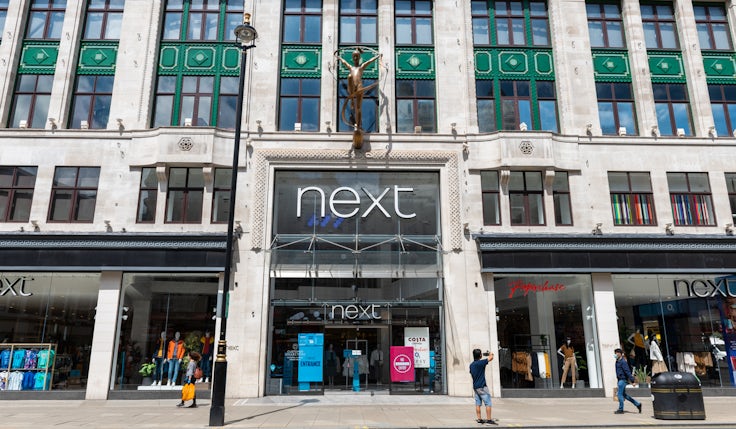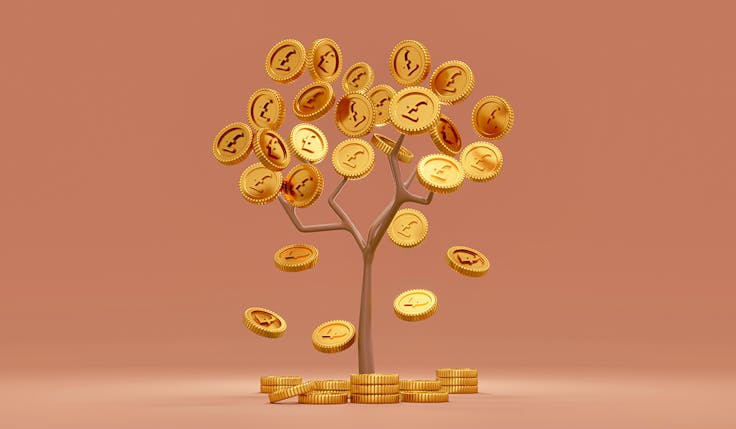Next CEO: Marketing spend is ‘not a decision made in the boardroom’
With the cost of living crisis dampening consumer demand, sales during August slowed “significantly” and were “below our expectations”, the retailer has said.

Next is taking a flexible approach to marketing spend as inflationary and cost of living pressures take their toll, with CEO Lord Simon Wolfson promising to adjust spend in line with return on investment (ROI).
“How much we spend on marketing isn’t a decision that’s made in the boardroom,” Wolfson told Marketing Week during a press briefing today (29 September).
“It’s a campaign-by-campaign decision where we’re constantly monitoring the returns we make on marketing and deciding whether to invest more or less going forward.”
The business typically aims to make £1.50 on every £1 spent on marketing, he said.
“If things get tough, then what you’ll find is the return on advertising falls and therefore we will cut marketing,” Wolfson added. On the other hand, if the cost of the retailer’s marketing drops and its ROI increases, it will choose to up investment once again.
Next will continue to invest almost exclusively into digital and direct marketing channels and to do “very little” brand marketing, a strategy the retailer kicked off in 2018 when it announced plans to more than double its digital advertising spend while cutting investment in print, TV and direct mail by 50%. Since then, the shift towards digital marketing has gradually increased, and Wolfson today confirmed the business is still seeing “incremental sales and profit” from its digital marketing efforts.
However, Next is not looking to make any further cuts to the brand spend it does currently make, Wolfson said.
Almost half of marketers say brands ‘too focused’ on ROI
“The only thing that would persuade us to cut that back is if we stopped making those returns, and that will depend on effectiveness and cost,” he explained.
The retailer has reported a “good performance” in the six months to July 2022, with its brand full price sales up 12.4% versus the same period in 2021, and up 22.3% against 2019. Profit before tax has risen by 16% to £401m.
However, sales during August slowed “significantly” and were “below our expectations”, the retailer said. Wolfson attributed this decline partly to record temperatures and an increased number of holidays abroad, as well as “waning” consumer confidence as the energy and cost of living crisis has dampened demand for discretionary spending.
Yet, Wolfson claimed the business has seen limited changes in consumer behaviour so far. He pointed to the business’s credit product, where overall consumers are not making late payments or defaulting on them. He said payment days were the “best measure” of how consumers are feeling.
One area where he did admit the retailer was seeing a difference, however, was in big ticket items, particularly in Next’s furniture section. This is where the biggest cost increases have occurred, he said, and is also where many consumers had splurged during the pandemic.
The business has therefore slashed its sales and profit guidance for the year, stating that with the cost of living crisis and inflation, “it seems inevitable that clothing and homeware growth will slow, if not reverse”.
Avoiding ‘crystal ball gazing’
Wolfson was cautious in making predictions about the year ahead, citing John Kenneth Galbraith’s maxim: “There are two kinds of forecasters: those who don’t know, and those who don’t know they don’t know.”
He said Next counts itself in the latter camp, and said the year ahead would depend on factors including how the government stimulus performs and the status of the pound going forward.
However, the business does expect to see its online sales decline in the autumn compared to last year due to tough comparators, he said, as the threat of Omicron last Christmas kept shoppers at home.
An important thing for us is not to pull levers which solve short-term problems but that actually create bigger problems later on.
Simon Wolfson, Next
While the business is still planning to move its operations increasingly online, “it appears that the exceptional online gains made during lockdown were only temporary, and that [its] online sales growth has now reverted to its previous trajectory”, it said.
Over the last three years, full price online sales have grown by 46%. Next is looking to improve its efficiencies in these areas and continue to improve areas like distribution and delivery.
Wolfson added that, despite economic pressures, the business would not pull back from investing in areas like product and technology that are important for its long-term strategy.
“The important thing for businesses and an important thing for us is not to pull levers which solve short-term problems, but that actually create bigger problems later on,” he said.
Despite uncertainty about what’s ahead, the Next boss also said the current economic challenges are less worrying for the business than the pandemic.
“During the pandemic when we were having to shut our shops and our warehouses and furlough hadn’t been announced, that was much more worrying than what we’re looking at now. This may last longer, but it’s nothing like the scale of the beginning of the pandemic, which was an existential challenge,” he said.






